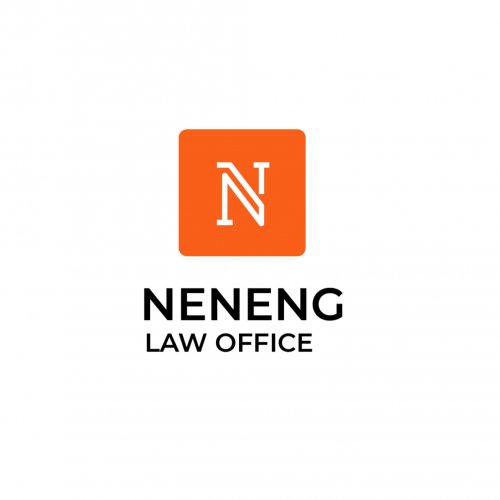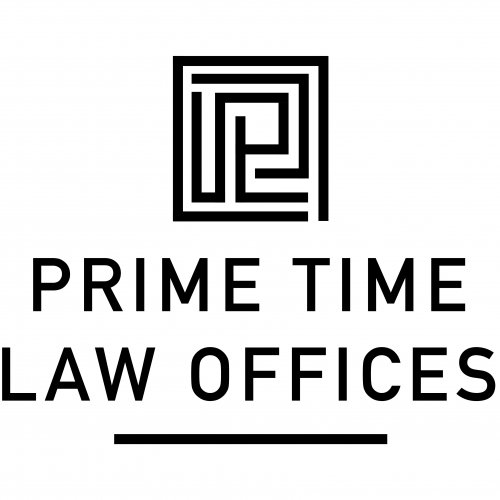Best Family Lawyers in Douala
Share your needs with us, get contacted by law firms.
Free. Takes 2 min.
Free Guide to Hiring a Family Lawyer
List of the best lawyers in Douala, Cameroon
About Family Law in Douala, Cameroon
Family law in Douala, Cameroon, deals with a wide range of legal issues that impact families. This includes marriage, divorce, child custody, adoption, inheritance, and domestic violence. The legal framework is influenced by both the civil law system and customary law, which varies among different ethnic groups. As Douala is the economic hub of Cameroon, it sees a mix of modern legislative rules and traditional practices. Understanding these complexities is crucial for anyone seeking to navigate family law in the region.
Why You May Need a Lawyer
Legal issues within the family can be emotionally charged and complicated. You may require a lawyer if you are dealing with:
- Divorce or separation, where property division and child custody must be resolved.
- Child support and custody arrangements, especially if they are contested.
- Domestic violence situations requiring protection orders or legal intervention.
- Adoption processes that need to adhere to both legal requirements and cultural practices.
- Inheritance disputes, which may involve interpreting wills and administrating estates.
- Prenuptial agreements to safeguard personal assets before marriage.
In all these cases, a lawyer can provide guidance and represent your interests effectively.
Local Laws Overview
The family law system in Douala is shaped by both statutory and customary laws. The Cameroonian Civil Code governs matters like marriage and divorce, often requiring court intervention to resolve disputes. Customary laws, which vary regionally, heavily influence issues like inheritance and marriage in some communities. For instance, polygamy is recognized under customary law. Additionally, French and English-speaking regions have differing legal standards due to historical influences, requiring nuanced legal interpretation in some cases.
Frequently Asked Questions
What is the legal process for obtaining a divorce in Douala?
Divorce in Douala requires filing a petition in court, which examines the grounds for divorce. Common grounds include adultery, abandonment, and irreconcilable differences.
How is child custody determined in family disputes?
Child custody decisions are based on the child's best interests, focusing on stability, care, and environment provided by each parent. Courts may intervene if parents cannot mutually decide on custody arrangements.
Can I adopt a child in Douala, and what are the basic requirements?
Yes, you can adopt a child. Adoption requires meeting specific legal criteria, including age, residency, and sometimes marital status. The process involves both social services and court procedures.
Is a customary marriage legally recognized in Douala?
Yes, a customary marriage is recognized but may need formal registration for legal issues such as inheritance and spousal rights. Customary law governs these marriages among different ethnic communities.
What should I do if I'm a victim of domestic violence?
Seek immediate assistance from law enforcement or a nearby social services center. Legal protection like restraining orders can be obtained through the court system with the help of a lawyer.
Are prenuptial agreements enforceable in Douala?
Yes, prenuptial agreements are enforceable, but they must comply with local legal standards and be freely entered into by both spouses without coercion.
How are property and assets divided during a divorce?
Property division depends on marriage type (community or separate property regimes). Courts aim for equitable distribution, and legal assistance ensures fair handling.
What happens if someone dies without a will in Douala?
If someone dies intestate (without a will), local laws dictate the distribution of assets, often favoring the spouse and children. Customary laws may also influence this process.
How can I change my child’s surname legally?
Changing a child's surname generally requires consent from both parents and a court order, especially if one parent disagrees with the change.
Who can help with mediation during family disputes?
Mediation services can be sought from lawyers specializing in family law or through non-governmental organizations that offer mediation to avoid lengthy court battles.
Additional Resources
For further assistance, consider contacting these organizations and governmental bodies:
- The Ministry of Social Affairs, which offers support for family-related issues.
- The Family Support Centre in Douala provides counseling and mediation services.
- Legal Aid Clinics for low-cost or free legal assistance on family matters.
Next Steps
If you need legal assistance in family law, consider the following steps:
- Consult a qualified family lawyer to assess your situation and advise on legal options.
- Gather relevant documents such as marriage certificates, birth certificates, financial records, and any legal documents related to your case.
- Write down your questions and concerns to discuss with your lawyer.
- Explore local mediation services if you're interested in a non-litigious resolution.
Approaching family law matters with informed guidance can greatly assist in navigating the complex legal landscape in Douala, Cameroon.
Lawzana helps you find the best lawyers and law firms in Douala through a curated and pre-screened list of qualified legal professionals. Our platform offers rankings and detailed profiles of attorneys and law firms, allowing you to compare based on practice areas, including Family, experience, and client feedback.
Each profile includes a description of the firm's areas of practice, client reviews, team members and partners, year of establishment, spoken languages, office locations, contact information, social media presence, and any published articles or resources. Most firms on our platform speak English and are experienced in both local and international legal matters.
Get a quote from top-rated law firms in Douala, Cameroon — quickly, securely, and without unnecessary hassle.
Disclaimer:
The information provided on this page is for general informational purposes only and does not constitute legal advice. While we strive to ensure the accuracy and relevance of the content, legal information may change over time, and interpretations of the law can vary. You should always consult with a qualified legal professional for advice specific to your situation.
We disclaim all liability for actions taken or not taken based on the content of this page. If you believe any information is incorrect or outdated, please contact us, and we will review and update it where appropriate.
Browse family law firms by service in Douala, Cameroon
Douala, Cameroon Attorneys in related practice areas.











